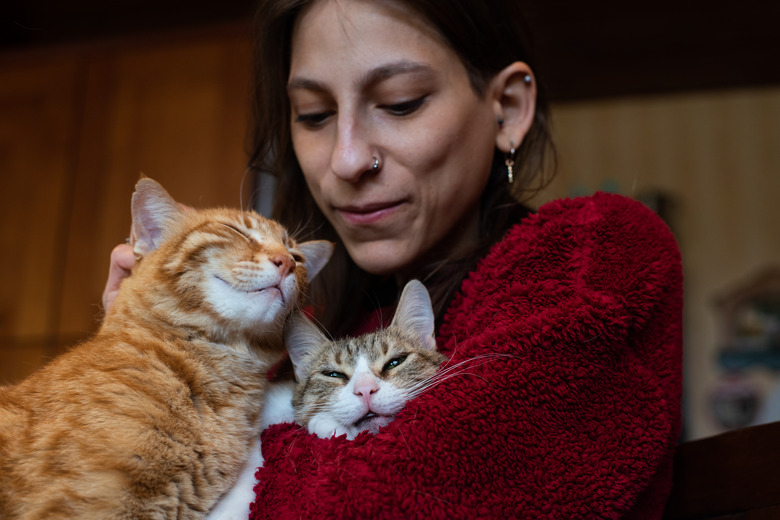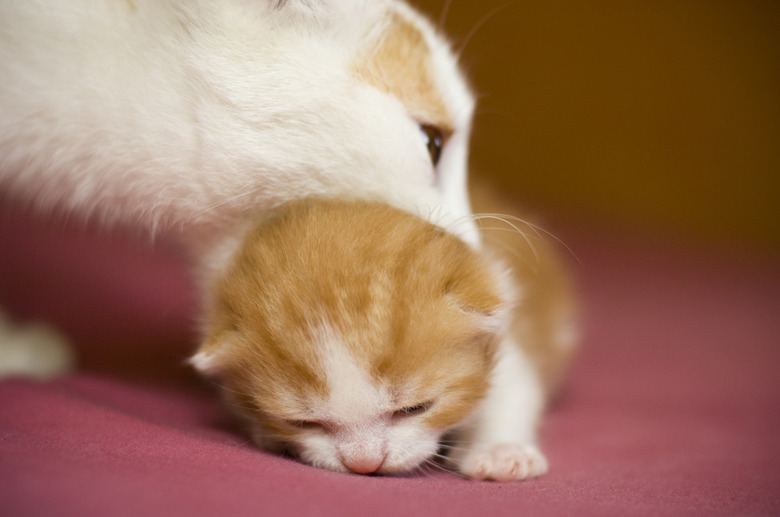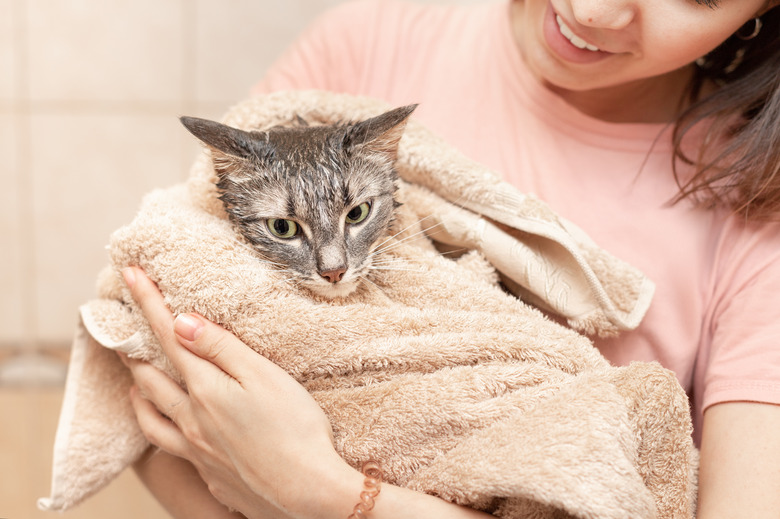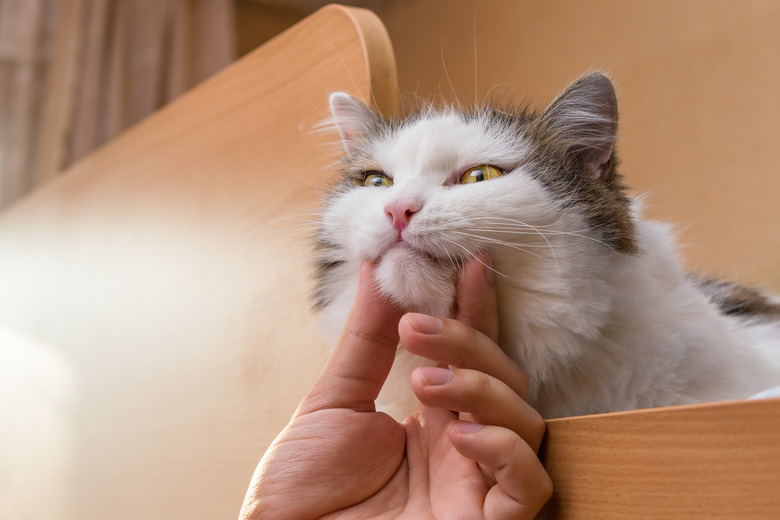What Is Scruffing And Why Shouldn't You Do It To Your Cat?
If you've ever seen a mother cat hold her kittens in her mouth by their loose skin at the back of the neck, then you've seen scruffing. While it's natural and healthy for a mother cat to hold and carry her kittens this way, the action of scruffing is not recommended for an adult cat, even though many cat owners were taught to restrain cats this way. Scruffing causes a cat distress and stress, and really isn't an effective way to manage them.
What is scruffing a cat?
What is scruffing a cat?
International Cat Care) defines scruffing as restraining a cat by firmly gripping the loose skin at the back of the cat's neck. A person may do this while at the same time lifting the cat up, moving it, or generally restraining the cat in other ways. You may see some veterinarian offices using this handling technique, but International Cat Care has made a statement asking vets to pledge to never do it except in rare occasions when there is an imminent danger to the cat or to personnel or as a last resort.
International Cat Care says it is understandable that you may want to scruff a cat when you're worried about the cat biting you, and it actually may keep them from being unable to bite you. But the resulting stress the cat feels may actually provoke or escalate their defensive aggression instead of having the calming effect you might be looking for.
Mother cats scruffing kittens
Mother cats scruffing kittens
When a mother cat scruffs a kitten, she holds them in her mouth by the loose skin at the base of their neck. It causes them to relax, which is why it's been carried over as a common belief that it's ok to do to adult cats. But the truth is that mother cats only carry kittens by the scruff for the first few weeks of their life. Her primary reason for a scruff is to move her kittens one at a time from one place to another. Once they are older and more independent, she no longer does it. When kittens are young, they have a reflex that causes their bodies to go totally limp when she picks them up this way.
While this is a good reflex to protect them when they are babies, by the time they are adolescent they no longer have this reflex. The Tufts University veterinary blog explains that holding an adult cat this way does not cause cats to relax. In adult cats, scruffing causes fear and stress due to the hold being used during stressful situations including mating and when they are attacked by a predator.
When a male cat is mating with a female cat in estrus (or heat), he holds her by the back of the neck to keep her still. Predators often make a killing lunge to grab a cat by the back of the neck. The reaction that some people see as being "relaxed" is actually one of fear — it's actually a physical shutdown that happens when an animal experiences a high level of fear and stress.
What to do instead of scruffing a cat
What to do instead of scruffing a cat
If you need to hold a cat, try aa gentler handling technique that International Cat Care (ICC) and Tufts University recommend instead. ICC says gentle handling techniques allow the cat to have some sense of control, which is important for them to not feel so defensive. Instead of scruffing, place your hand gently behind a cat's jaw. If you're worried about a cat's teeth getting in the way of your exam or medical treatment, place them in an Elizabethan collar. Another effective way to handle a scared cat is to wrap them in a towel draped gently over their head so they can't see. Even sedation can be an effective method when it is called for.
The American Association of Feline Practitioners (AAFP) recommends using pheromone diffusers in a veterinary setting to help calm feline patients. The pheromone spray can be used in carriers and cages, on towels and on clothing and hands. If you're examining a cat's mouth or ears, utilize a "burrito wrap" with a towel that leaves their head free. Massaging a cat's head, behind their ears or under their chin, is often good for both distracting and calming a cat.
In conclusion
In conclusion
The handling technique of scruffing an adult cat by holding them firmly by the loose skin on the back of the cat's neck is not recommended. It is based on the flexor reflex that kittens have that causes them to relax when their mother holds kittens by the cat's neck. Once a kitten is more than a few weeks old, however, they use this reflex and holding them that way causes stress and fear. It's much better to use a gentler handling technique such as wrapping them in a towel, gently massaging them, and using a calming pheromone spray instead of scruffing.



